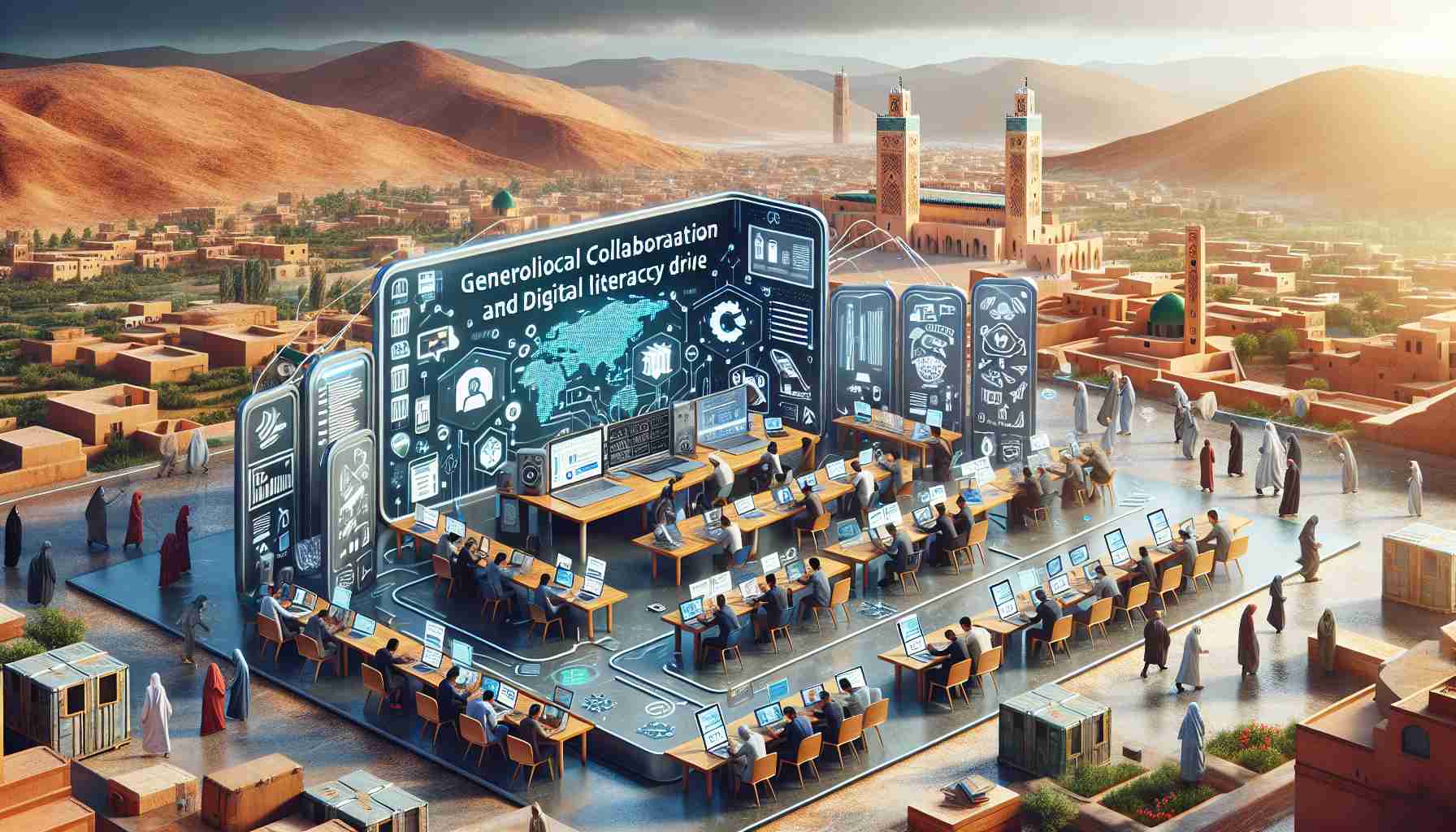Huawei has partnered with UNESCO to bolster digital literacy among Moroccan educators, with a goal to uplift 10,000 teachers in the realm of digital fluency by 2025. This alliance is an outgrowth of the Global Education Coalition and the Global Alliance for Literacy, which recognizes the increasing importance of incorporating technology into teaching and literacy after the recent global health crisis.
The Moroccan venture was officially unveiled on a Monday, as Huawei announced a cohesive plan alongside UNESCO’s Institute for Lifelong Learning, UNESCO’s Regional Office for the Maghreb, and Morocco’s own National Agency for the Fight against Illiteracy. In Rabat, the capital city, enthusiasm was palpable during the kickoff as stakeholders emphasized the transformative role of literacy in both individual growth and societal progression.
The drive towards literacy is not just about reading and writing – it reflects a shift to harvest the full potential of technology in education. The implications for teachers and educators are profound: by gaining digital prowess, they can unlock new ways to inspire and educate, crafting a more resilient and adaptable learning environment.
This endeavor promises to further female participation in technology-related fields, drawing strength from Huawei’s dedication to global digital education and initiatives like “Women in Tech.” By closing the STEM gender divide, new avenues open for women aspiring to be leaders in tech industries.
The initiative is not only a significant step for the involved educators but also a strategic move for Huawei, signaling deeper involvement in North Africa’s burgeoning digital marketplace. Through this project, Huawei reinforces its commitment to Morocco’s strategic ambition to lead in digital education, resonating with the broader Sustainable Development Goal of ensuring inclusive and equitable quality education.
Relevant Additional Facts:
– Huawei is a leading global provider of information and communications technology (ICT) infrastructure and smart devices. Huawei
– UNESCO, the United Nations Educational, Scientific and Cultural Organization, focuses on building peace through international cooperation in education, sciences, and culture. UNESCO
– Morocco has made significant strides in improving literacy rates in recent years, but challenges remain, including urban-rural divides and gender disparity in education.
– The Global Education Coalition was launched by UNESCO to support countries in developing inclusive learning opportunities for children and youth during the COVID-19 crisis.
– The Global Alliance for Literacy aims to align efforts across countries and partners to promote literacy as part of lifelong learning.
Important Questions and Answers:
– Why is digital literacy important for educators in Morocco? Digital literacy equips educators with the skills to effectively use technology in teaching, which enhances the learning experience for students and helps bridge the digital divide.
– How will the collaboration between Huawei and UNESCO address the gender gap in tech? With programs like “Women in Tech,” the initiative aims to encourage and support more female educators to engage in technology-related fields, helping to close the STEM gender gap.
Key Challenges and Controversies:
– Implementing digital education in rural and underserved areas may be challenging due to limited infrastructure.
– Some may view collaboration with technology companies like Huawei with caution, given global concerns around data privacy and security.
– Ensuring that all educators, regardless of gender or socio-economic background, have equal access to digital literacy resources.
Advantages:
– Enhanced teacher competencies in the use of digital tools for education.
– Potential to reduce gender disparities in technology-related fields.
– Strengthened digital education ecosystem, contributing to Morocco’s strategic educational and technological objectives.
Disadvantages:
– Risk of deepening the digital divide if not all regions or demographics can benefit equally.
– Dependence on external corporations for educational advancements might raise concerns about influence and control over national education strategies.
Suggested Related Links:
– UNESCO Education 2030
– Huawei Sustainability-Education
The source of the article is from the blog queerfeed.com.br
